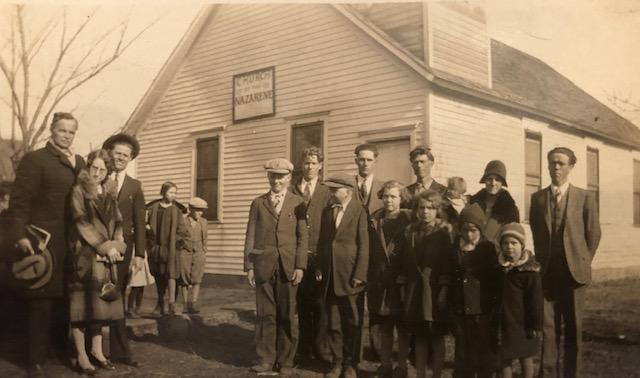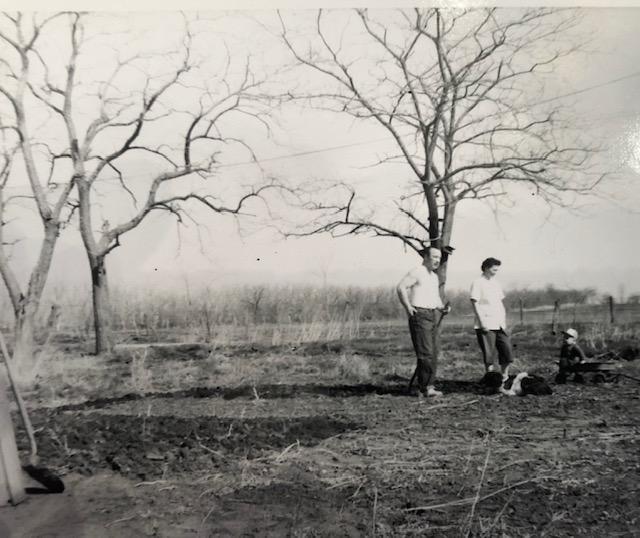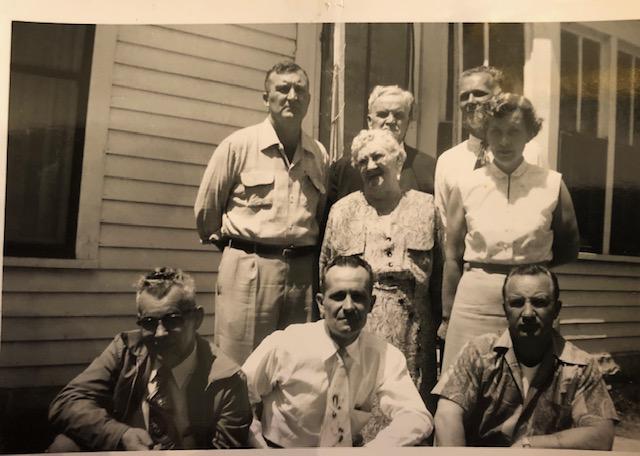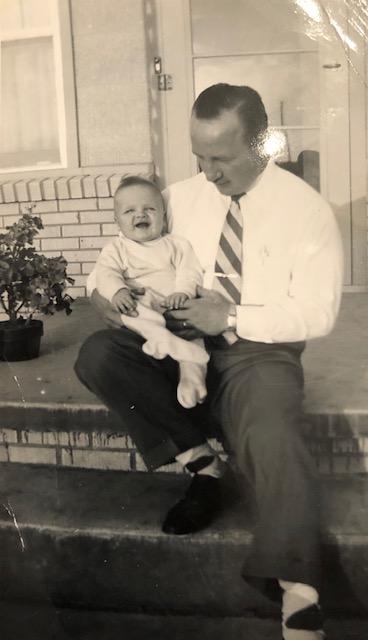What Labor Day Means To Me
"...in any conversation – social or political – I always have more affinity for the working man and woman… The laborer."
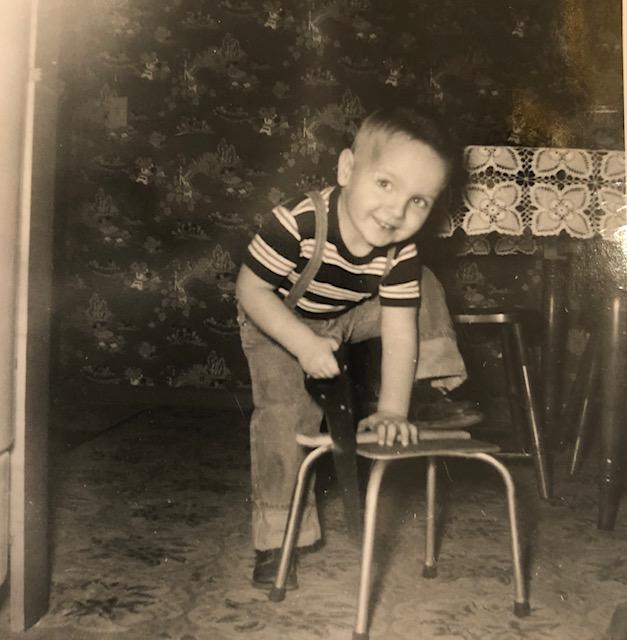
Me, ca. 1955 (age 2), putting a saw to some wood. Project unknown?
My father sacked groceries, worked in his brother's tire store, built Douglas A-20 Havoc attack aircraft, joined the Navy and went to war, came home to work for the phone company collecting pay phone coins, finally ascending into management. His father (and mother) was an itinerant preacher who lived hand-to-mouth. My mother worked as a clerk for Procter & Gamble, was a seamstress, and a payroll clerk for the Federal Aviation Administration. Her father was a farmer and carpenter; her mother a seamstress. They lost their farm to a land bank during the Depression; finally saving enough to buy it back.
Because of my college education, I was hired into management; made it up the ladder a couple of rungs before retiring. My wife held the critical “job” of homemaker, raising our three; but she went to work for Hallmark for ten years to help put those boys through college. My wife’s father, also a WWII veteran, came home and started his own lumber business, cutting timber and later building pallets. My wife’s mother managed some rental property and sewed her five children’s clothing. Our parents lived through the Depression.
On trash days, wearing a business suit ready to go to his office, dad was known to help the garbage collectors with our cans. Ask why, he’d reply “There is dignity in all labor“. He and mom always lived below their means. We were the last to have a clothes dryer, a color TV, a microwave oven. I remember using pickle juice as salad dressing; having saltines and milk as an after school snack. I wore homemade clothing until high school. A Schwinn bicycle was my transportation until I was a junior in college. Why? My parents saved to put me through college. My wife’s parents managed similarly for their children. The apple fell close to those trees.
We count ourselves very fortunate. We put three sons through college, help them where and when we can, and are especially grateful now, in a pandemic when so many are financially challenged because of lost employment. We count our blessings… and honor the example set by our parents: an honest, earnest work ethic that is never afraid of dirty hands or helping others. (And I couldn’t care less what my neighbors have, wear, or drive.)
The success of American capitalism derives from both labor and management. But which contributes more to our general national prosperity is a “chicken and egg” paradox. That said, in any conversation – social or political – I always have more affinity for the working man and woman… The laborer.
My grandfather, the Rev. Garrett (far left) and one of his very first permanent churches with its congregation.
The farm picture is at my Grandparent Montgomery's farm outside Olathe. That's my dad, mom and me. They're putting in a vegetable garden for my grandparents.
The Garrett Family: Kneeling, left to right, my uncle Clyde, Lloyd, and my father Phillip. Standing (l to r), my uncle Thurman: Grandfather and Grandmother, CJ and Mary Garrett, my uncle Ervin, and aunt Velma. The Labor Day tie-in: Clyde ran a tire store in Abilene, KS where my father joined him for a time. Lloyd was a truck driver. Thurman worked as a fireman at Thule AFB in Oklahoma City; Ervin was a carpenter. Velma ran the small airport in Lebanon, MO. Both my grandparents were Nazarene ministers.
My father and me, 1953 in Hays, KS. Southwestern Bell had just promoted him to management - his first "white collar" job.
David Garrett
When he's not dodging coronavirus, bicycling, or exercising his pet vizsla, Aubrey, David is a docent at the San Antonio Missions National Historical Park, with over 3,800 volunteer hours. He is a four-time recipient of the President's Volunteer Service Award. David is a thirty-year volunteer with the Boy Scouts of America, receiving the District Award of Merit and the National Scoutmaster Award. He retired in 2013 after a thirty-four year career in marketing with AT&T. David is a BA graduate of Mid-America Nazarene University and earned his MS from Kansas State University. David and Diane, his wife of forty-four years, have lived in San Antonio since 1998. They have three sons - Brian, Bradley, and Geoffrey (each is an Eagle Scout and a college graduate).
Curator's Note: This is the second essay David has written for Profound Living. The first was titled "Scoutmaster Minute". I met David in high school 50 years ago. What I find fascinating is how little we are apt to know about people we've gone to school with, worked with for decades, or been neighbors with for 25 years or more. I've known David for a half a century now and most of what's in his article I just learned a couple of days ago. This essay is about work, the people who have labored before us, and "an honest, earnest work ethic that is never afraid of dirty hands or helping others."

